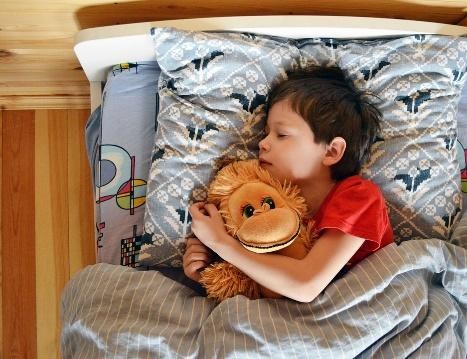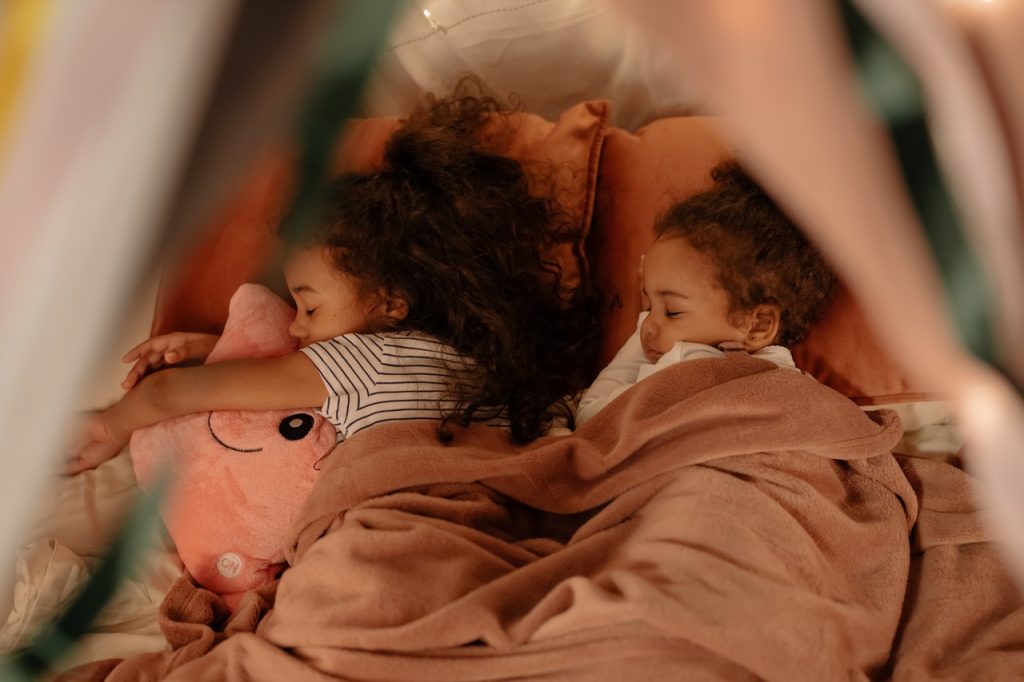Although sleep issues are commonly regarded as an adult problem, they affect a sizable number of children, as well. So, if your kids are having trouble falling asleep, staying asleep or getting up in the morning, you’d do well to address this sooner rather than later. There are a variety of reasons for which children experience sleep issues, many of which are easily remedied. When getting to the bottom of what’s causing your children’s troubled slumber, consider the following causes.

Uncomfortable Mattresses
Unsurprisingly, sleep issues in children – and in many adults, for that matter – can be traced back to uncomfortable mattresses. So, if your child’s current mattress is past its prime or unable to provide sufficient comfort, you’d do well to seek out a replacement. While there’s no denying that good mattresses can be expensive, being overly frugal stands to impede your child’s overnight comfort and diminish their sleep quality. When shopping for kids mattresses, make sure to take your child’s height, weight and comfort preferences into careful consideration.
Too Much Screen Time
These days, it seems like many of us live our lives through various devices – and kids are no exception. However, as convenient as smartphones, computers and various other gadgets can be, excessive screen time also stands to interfere with sleep patterns and overall quality of slumber. So, if your kids use their devices right up until bedtime and/or bring any screen-based devices to bed with them, you should put a stop to this.
Excessive screen time can leave our minds overstimulated, suppress melatonin levels and delay sleepiness. To help nip this problem in the bud, have your children turn off their various screens at least one hour before bedtime, regardless of how much guff they may give you. Furthermore, in the leadup to bedtime, ask them to engage in relaxing pre-sleep activities, like reading, journaling and deep breathing exercises. You should also prohibit them from using their screen-based devices if they wake up in the middle night and are unable to get back to sleep. Rather than tire them out, these devices are likely to leave their brains stimulated, making it even more difficult for them to fall back asleep.
To help ensure the successful implementation of these rules, make a point of leading by example. After all, too much screen time can be every bit as detrimental to an adult’s sleep habits as a child’s.
Unaddressed Mental Health Issues
Mental health issues like anxiety and depression don’t just affect adults. In fact, such issues are far more common in children than many parents realize. Unfortunately, children suffering from mental health problems don’t always understand what they’re experiencing or feel inclined to speak up about them. Additionally, as is the case with countless adults, unaddressed mental health problems can keep kids up at night and negatively impact their functionality in the waking world.
To help prevent mental health issues from interfering with your children’s quality of slumber, make a point of checking in with them on a regular basis and inquiring about any problems that may be bothering them. Should you discover that any of your kids are suffering from mental health problems, arrange for them to receive proper professional help and offer your unflinching assistance throughout the recovery process.
Lack of Consistency in Their Sleep Schedule
When it comes to maintaining healthy sleep habits, keeping a consistent sleep schedule can prove highly beneficial to both children and adults. So, if your kids go to sleep at different times on different nights and lack a set bedtime routine, make sure to correct this. Giving them a definitive bedtime and sticking to it will provide your little ones with a sense of structure and help ensure that their internal clocks adjust to a clearly defined sleep schedule.

It’s easy to see why so many of us view sleep issues as a uniquely adult problem. After all, adults tend to be more vocal about problems with their sleep quality, and in many cases, the effects of said problems are more readily apparent. However, this doesn’t mean that troubled sleep is exclusively the domain of grownups. A significant number of children experience sleep problems for a plethora of reasons, and the sooner these reasons are identified, the sooner parents can address the issue in earnest.

